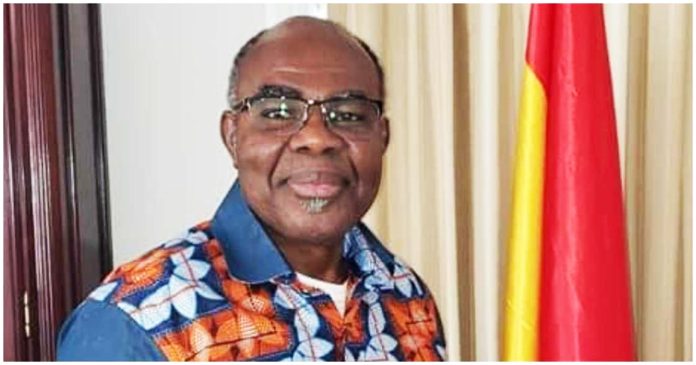Former Attorney General in the Kufuor administration, Ayikoi Otoo, who is also counsel for the dismissed Chief Justice, Gertrude Araba Esaba Sackey Torkornoo, has raised serious concerns about the conduct of the Article 146 Committee led by Justice Gabriel Pwamang.
Speaking on NEWSFILE programme on Joy FM over the weekend, Otoo accused the committee of hurrying its work and ignoring due process in submitting the first of three findings to President John Dramani Mahama. According to him, this rushed approach compromised fairness and transparency, effectively burying justice.
Alleged Haste and Procedural Irregularities
Otoo questioned why the committee presented its findings before hearing all submissions. “This is just most unfair. The whole thing they have done is wrong and they are just in a hurry,” he said. He revealed that his team had been told there would be an adjournment, only to discover that a decision had already been taken.
He expressed concern that the committee’s haste could have been intended to pre-empt other judicial or ECOWAS decisions. “If somebody does not want us to speculate, we would go ahead and speculate. Why? What is the rush for? One week, as she herself put it, what would have spoiled it?” Otoo asked, highlighting that even a short extension could have allowed the process to be completed fairly.
Otoo also criticized the committee for only considering evidence from one side. “You listened and now you are quoting things from their submissions. Have you seen ours to see what responses we gave?” he asked. Drawing on his more than forty years of legal experience, Otoo said the approach undermined procedural fairness and the principles of natural justice.
He stressed that the Chief Justice’s travel arrangements and per diem entitlements were in full compliance with the judiciary’s policies. “Please, don’t trivialize it. The travel policy emanated from the Judicial Council, of which Pwamang has been a member. The Chief Justice is entitled to travel with persons of her choice, and per diem arrangements were proper,” he explained.
On Financial Allegations
The former Attorney General addressed claims that the Chief Justice’s foreign travel constituted unlawful expenditure. He noted that auditors had reviewed the travel records, accepted the explanations provided, and raised no objections in their management letter. “Once auditors look at the record and raise issues, and explanations are given, the matter ends. There was no objection after that,” Otoo emphasized.
He also faulted the committee for disregarding documents tendered by Tsatsu Tsikata, which clarified that certain financial policies did not apply to the judiciary due to its constitutional independence. “We allowed it to be defended and bring it out to show that it does not apply to them,” he said.
Questioning Misbehavior Allegations
Otoo challenged the committee’s findings that the Chief Justice’s administrative decisions amounted to stated misbehavior under Article 146. He highlighted routine transfers, IT oversight duties, and e-justice system management as normal functions of her office, not misconduct.
“When someone discharges their duties as head of department or IT expert, and manages the e-justice system, how does that constitute misbehavior? Where is this defined in the constitution?” he asked, emphasizing the absence of clear evidence to justify her dismissal.
On Article 146 and Due Process
The former Attorney General argued that Article 146 provides that a justice of a superior court can only be removed for stated misbehavior, incompetence, or inability to perform their functions. He questioned the committee’s interpretation and evidence, insisting that the findings against the Chief Justice lacked merit.
“I am disappointed. Where is the evidence? All the things they are claiming, were they accepted? The committee has failed to prove any of it,” Otoo said. He stressed the importance of procedural fairness and adherence to constitutional safeguards, warning against the erosion of judicial independence.










